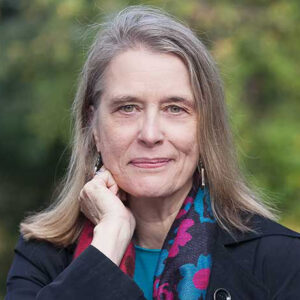Gene Kelly sings, dances and playfully splashes in puddles in one of the most iconic scenes from the 1950s’ Hollywood musical Singing in the Rain. Despite being soaked to the skin, he remains optimistic while ignoring the drenching rain. We suspect that tomorrow he will wake up with a temperature, but in the meantime, he enjoys the moment.
Community singing during the Covid pandemic exhibited some of that same playfulness despite our sober living conditions. (Singing was considered an ideal spreader activity with people’s proximity and vocal exhalations posing a threat.) In the initial six months of the pandemic, our small singing group took to the internet and Zoom to sing our way through the storm but we soon learned technology’s limits. The technical challenge comes from the variability of speed at which individual computers receive and transmit data. In other words, it is close to impossible to sync sound live with more than two computers.
We did devise some online solutions: one night was music trivia and another evening some members performed with the rest of us listening. Our leader, a talented singer and guitarist, performed with his partner, a former Punk Rocker and mandolin player in a casual command performance. Another strategy we had was to mute our computers’ sound except for our leader, who would then lead us in a song. This allowed us to sing while watching others silently mouth the words from the monitor. It was a disjointed experience and a reminder of how much distance we were all trying to travel to stay connected. (Our repertoire is eclectic/popular music from Simon & Garfunkel and Sting to Dusty Springfield and Lorde.)
Our greatest achievements were rotunda singalongs in a local park outside of town. The shelter is surrounded by gum trees and sits next to a gravel and dirt walking path. One blustery day, we gathered underneath it to sing next to a crackling fire. We wore coats, thick scarves and woollen caps and sat at wooden picnic tables while socially distanced with masks. The masks made it difficult to hear one another and the smoke from the fire kept shifting direction and stinging our eyes but we were still together and singing.
Over the period of the pandemic, the group worked to defy the changing Covid landscape with artful attempts to mix and match solutions in ways that kept us hopeful. But we were not prepared for the drama that would be played out around the vaccinated and non-vaccinated.
A few members made the choice not to be vaccinated and the group gamely tried to respond creatively to this new twist. Our solution was to alternate singing venues and the members who would attend. One week, we met at someone’s home with the officially vaccinated, and on the alternative week, we gathered outdoors at a community venue (weather dependent) with fresh air and socially distanced. This was an awkward solution but out of respect for our friends’ choices we tried to continue to sing together without jeopardising the easy camaraderie and well-being of the group.
If the Covid pandemic has taught us anything, it is that we are only as strong as our different parts. Our singing group’s efforts to connect over fractious technology, to persist in the face of erratic lockdown conditions and to harmonise during a period of divisive pandemic politics left us gasping for air. We were being called upon to adjust to one another’s different voices. It was not easy but during a time of unsettling discord, we learned that singing is not for the faint of heart.
